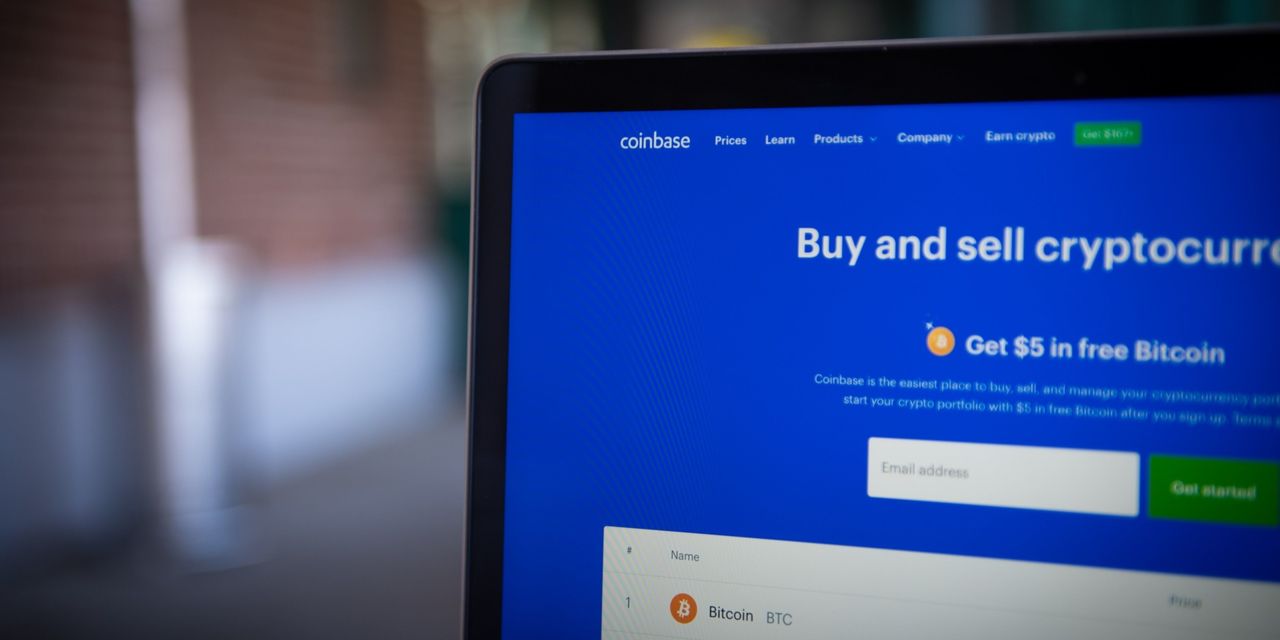Coinbase Global
has won approval to offer cryptocurrency futures in the U.S., a rare regulatory win for the crypto broker that will allow it to tap the largest market in digital assets and more directly compete with Binance, the world’s largest token exchange.
Coinbase (ticker: COIN) announced Wednesday that it had received the green light to offer federally regulated crypto futures to eligible U.S. customers on its platforms. Approval comes as a long-awaited nod from the National Futures Association (NFA), with whom Coinbase filed in September 2021 to become a futures commission merchant (FCM). FCMs play a key role, like a broker, in derivatives markets, including extending leverage, or borrowed money, to traders.
Acceptance from the NFA—a self-governing body for the futures industry designated by the Commodity Futures Trading Commission (CFTC), the federal derivatives regulator—is a rare win for Coinbase, and crypto at large. The industry has come under intense regulatory scrutiny over the past year and Coinbase is no exception, charged by the Securities and Exchange Commission (SEC) with operating an unregistered securities exchange, which it has denied.
Coinbase said that its approval as an FCM—which it called “a critical milestone”—makes it the first crypto-native company to directly offer traditional spot crypto trading alongside futures products.
CME
and CBOE, stalwarts of traditional finance, already offer trading in Bitcoin and Ether futures.
Expanding into the futures space has the potential to allow Coinbase to tap into demand for crypto’s most popular product: Bitcoin perpetual futures, which have the most liquid market in the digital asset economy. Coinbase highlighted that the global crypto derivatives market represents some 75% of all trading volumes.
Offering leveraged futures may also help bring feisty retail traders—who have stood at the center of Coinbase’s trading business—back into the fold. Many retail investors have headed for the hills and abandoned crypto since the beginning of a brutal bear market last year, with lackluster volatility in recent months doing little to lure them back.
The push into derivatives will, at least, put Coinbase into even closer contention with Binance, the world’s largest crypto exchange and an offshore behemoth. Binance hosts the world’s largest crypto futures market and reaps significant profit from offering large amounts of leverage to traders, many of whom trade small and highly volatile tokens. It’s unclear the extent to which Coinbase will offer leverage and for which products it will offer derivatives, though
Bitcoin
and
Ether
are likely among them.
Coinbase did not immediately respond to a request for comment from Barron’s.
Shares in Coinbase were up 1% on Wednesday, outpacing Bitcoin, which was down 1% over the past 24 hours, as well as the
S&P 500,
last 0.2% higher. But while investors celebrate, one analyst is skeptical that offering futures will shift the needle.
“Since the global crypto derivatives market can be three to four times larger than spot, this approval increases Coinbase’s total addressable market,” Dan Dolev, an analyst at Mizuho Securities, wrote in a Wednesday note. But there are some key caveats.
Dolev is a Coinbase bear, rating the stock at Underperform with a $27 price target far below Wednesday’s opening level of $82.51.
For one, Dolev said, there may be cannibalization risk. Coinbase bought regulated derivatives exchange FairX last year, renaming it Coinbase Derivatives Exchange and funneling business to it through third-party brokers. Also, perhaps crucially, offering futures could pressure the fees at the heart of the spot trading business, Dolev said, noting that derivatives tend to have lower fees than spot.
For now, at least, investors—who have already driven Coinbase stock up 125% this year—are looking past those worries.
Write to Jack Denton at [email protected]
Read the full article here



